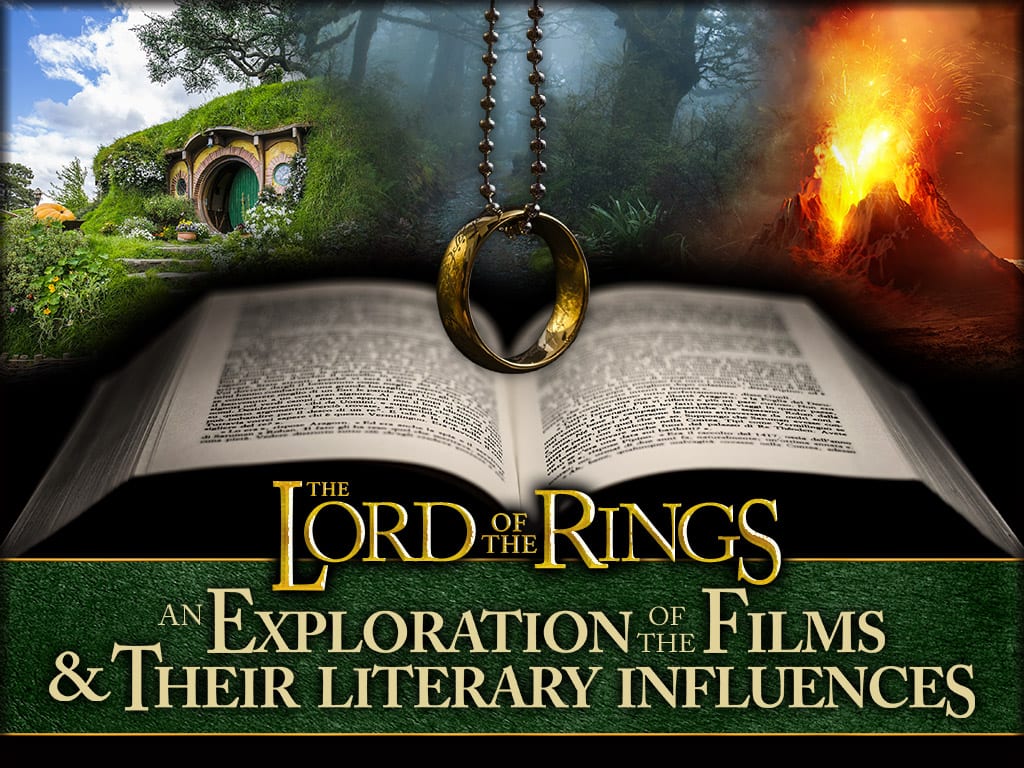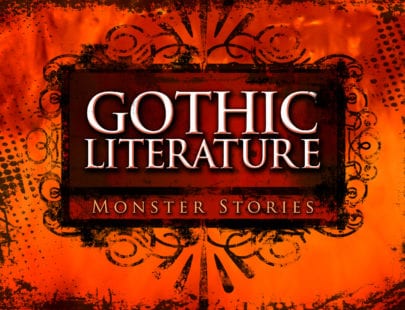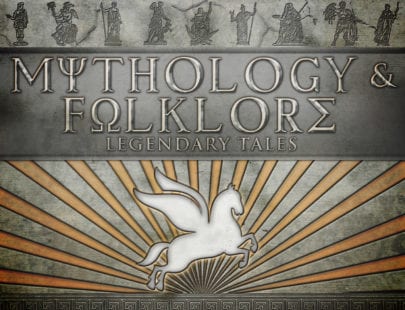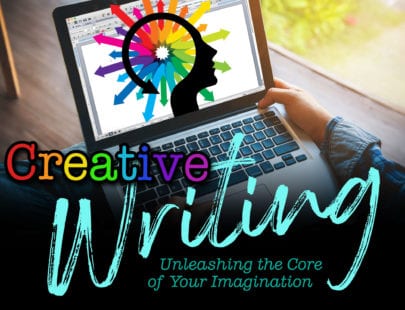
The Lord of the Rings: An Exploration of the Films & Their Literary Influences
The Lord of the Rings is one of the most popular stories in the modern world. In this course, you will study the movie versions of J.R.R. Tolkien’s novel and learn about the process of converting literature to film. You will explore fantasy literature as a genre and critique the three Lord of the Rings films.
Units at a Glance
Unit 1: The Man Behind the Movie
The Lord of the Rings is one of the most well-known books of the past century and has been translated into many languages. Now that it has been made into a trilogy of major motion pictures, the story has gained an even greater following. In this unit, you’ll learn more about the author of the novel and how the book came into being. You’ll explore The Hobbit, which acts as a prequel to The Lord of the Rings. In addition, you’ll explore the background of some of the major races and characters in Middle Earth and how they impacted the story, especially in The Fellowship of the Ring.
What will you learn in this unit?
- Discuss the cultural impact of The Lord of the Rings.
- Report on J.R.R. Tolkien, the author of the book.
- Discuss the writing of The Hobbit, the prequel to The Lord of the Rings.
- Give an overview of the basic story of The Hobbit and understand its connection with The Lord of the Rings.
- Outline the first part of The Fellowship of the Ring.
- Recount details about the characters in The Fellowship of the Ring.
Unit 2: The Languages of The Lord of the Rings
One of the elements that makes The Lord of the Rings so unique is the lengths to which the author went to create a world that seems real. One of the most interesting elements is the creation of the various languages used in Middle Earth. However, the creation of these languages is far more than an afterthought; it’s truly the foundation of Middle Earth. In this unit, you will learn more about these languages and about Tolkien’s role as a philologist at Oxford University. As we discuss the second part of the The Fellowship of the Ring, you will explore the role that language plays, not only in Middle Earth but also in your world.
What will you learn in this unit?
- Discuss Tolkien’s career as a philologist.
- Develop new vocabulary related to the study of language.
- Explore the evolution of the English language.
- Analyze how the creation of the Elvish language impacted the creation of Middle Earth.
- Outline the background of The Lord of the Rings as it appears in the second part of The Fellowship of the Rings.
Unit 3: The Influence of the Arthurian Tales
The ideas behind The Lord of the Rings come from many literary sources, all of which were familiar to a classically educated English man living during the first part of the twentieth century. One of those sources was the tales of King Arthur and the Knights of the Round Table. Even today, these stories play an important role in modern entertainment, as the number of related movies, television shows, and books demonstrates. A basic understanding of the legends of King Arthur helps to properly understand some of the concepts in The Lord of the Rings. In this unit, you will examine the basic Arthurian story and explore in depth the tale of Sir Gawain and the Green Knight, a Middle English poem translated by J.R.R. Tolkien.
What will you learn in this unit?
- Retell the basic story of King Arthur and the Knights of the Round Table.
- Develop a new vocabulary related to the study of King Arthur and the period in which the stories were set.
- Discuss Tolkien’s scholarship as it relates to the stories of King Arthur and Sir Gawain and the Green Knight.
- Explore the story of Sir Gawain and the Green Knight.
- Describe how the concepts in the stories of King Arthur impacted the creation of The Lord of the Rings.
Unit 4: Converting a Classic to a Film
Many great works of literature have been converted into movies over the past century. Great classic stories have an enduring appeal that translates well into multiple media. Converting a story to a movie offers a lot of advantages and often reaches a wider audience. But this transition also has disadvantages. In this unit, you’ll learn more about the way that The Lord of the Rings was converted into a film and how this change has affected the story.
What will you learn in this unit?
- Describe the process of converting a book to a film.
- Explore the advantages of presenting a classic book as a film.
- Outline the advantages of reading the story in book form.
- Explain how the movie changed some elements of this portion of The Two Towers.
Unit 5: The Heroic Culture of The Lord of the Rings
Though Middle Earth is an imaginary world, its social and political structures are drawn from the ancient roots of Western civilization. In this unit, you will learn about some of these conceptual roots, particularly those that affect the changing views of war and heroism, such as the concept of the ancient epic hero and the medieval system of comitatus. You’ll also appreciate how these ideas are presented in The Lord of the Rings. In addition, you’ll learn about the more modern ideas that are expressed in The Lord of the Rings, such as conservation and ecology. Finally, you will explore some of the complex character relationships that are revealed in this portion of The Two Towers movie.
What will you learn in this unit?
- Describe the heroic feudal culture of comitatus.
- Explore how this heroic concept is developed in The Lord of the Rings.
- Define the concept of the epic hero.
- Discuss the concept of the epic hero as portrayed in The Lord of the Rings.
- Analyze how Tolkien used The Lord of the Rings to express his own views on conservation and ecology.
- Discuss character development in The Two Towers.
Unit 6: Beowulf, the Monsters, & The Lord of the Rings
Before Tolkien wrote The Lord of the Rings, he had already established a reputation as one of the foremost Beowulf scholars of his day. At that time, Beowulf was regarded mainly as a historical document that baffled historians by its fantastic references to monsters and impossible feats of heroism. Tolkien’s scholarship and landmark essay “Beowulf: The Monsters and the Critics” changed the way that the world viewed Beowulf. As a result, the story of Beowulf has gained significance in our age, even hitting movie screens in several recent adaptations. Tolkien also drew important lessons from his study of Beowulf, which greatly impacted his fantasy writings. In this unit, you’ll learn more about Beowulf and its influence on The Lord of the Rings.
What will you learn in this unit?
- Discuss the background of the epic poem Beowulf.
- Describe features of Old English poetry.
- Outline the story of Beowulf and its view of heroism.
- Explain Tolkien’s view of the value of monsters in fantasy literature.
- Analyze how Tolkien’s scholarship concerning Beowulf affected the writing of The Lord of the Rings.
Unit 7: Mythopoeia: The Making of Fantasy Worlds
J.R.R. Tolkien and a few others of his generation became actively involved in creating fantasy worlds, complete with their own mythology and sets of rules. Now, fantasy worlds spring up on bookshelves on a regular basis. In this unit, you’ll learn more about the genre of fantasy literature and why Tolkien defended its use for a teen and adult audience in his famous essay “On Fairy Stories.” You’ll also explore the differences and similarities between fantasy and science fiction and discuss the advantages of fantasy literature as seen through the mind of J.R.R. Tolkien. In addition, you’ll learn more about the background material of the first half of The Return of the King.
What will you learn in this unit?
- Describe some of the genres of literature.
- Discuss fantasy literature and its relation to science fiction.
- Define mythopoeia.
- Discuss Tolkien’s famous essay “On Fairy Stories” and the advantages of fantasy that Tolkien described in that essay.
- Outline the background material of the first half of The Return of the King.
Unit 8: Journey’s End: The Final Analysis
In this unit, we will end our Quiz of The Lord of the Rings. But first, you’ll learn how the ending of the book varies in many ways from the movie. You will trace the major themes of the movie and how they played out in the end. You’ll also discuss characterization in depth and discuss the elements of plot. And you’ll examine how the quest has affected many of the characters in the story since the beginning of the journey and where this journey took them in the end.
What will you learn in this unit?
- Describe the themes and motifs in the movie.
- Discuss conflict in a story and how this adds interest to the tale.
- Define the differences between dynamic and static characters.
- Compare the differences between the book and movie versions of The Return of the King.
- Discuss more about the basic elements of plot development.
- Outline the development of all the major characters in the story and where the story took these characters even after the film was finished.
Required Materials
You will be required to own or have access to the extended versions of the three Lord of the Rings films:
- The Lord of the Rings: The Fellowship of the Ring
- The Lord of the Rings: The Two Towers
- The Lord of the Rings: The Return of the King
If you do not already have access to these movies, you may consider other sources such as your local library.



